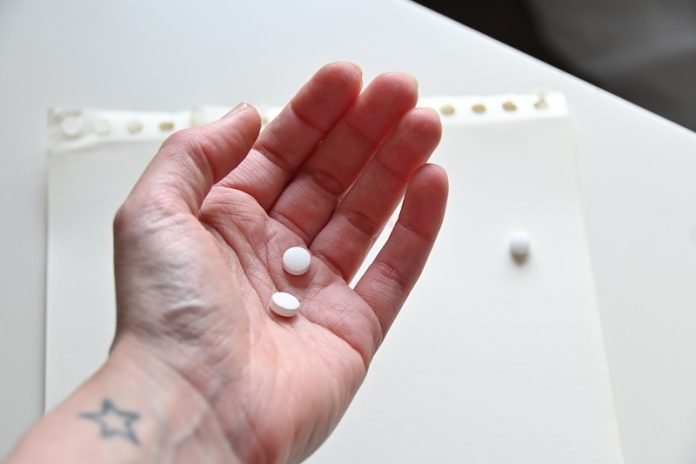
Liver disease is a condition that affects millions of adults in the United States.
The disease can develop into a more serious condition known as nonalcoholic fatty liver disease (NAFLD) which can lead to chronic inflammation, scarring of the liver, and even cancer.
While NAFLD can be reversed in its early stages, it becomes harder to treat as it progresses.
Unfortunately, there is currently no standard therapy for the more serious condition, known as inflammatory steatohepatitis, or NASH.
Researchers at Georgetown University recently developed a new drug that could potentially help treat these conditions.
The team developed a small molecule that can inhibit the activity of a key gene, Slc25a1, that plays an important role in fatty liver disease.
In their study, they administered the new drug, CTPI-2, to mice on a high-fat diet as a preventative treatment before NASH developed, or as a reversion treatment in mice with significant liver damage.
They found that CTPI-2 was able to nearly completely prevent the evolution of NASH and obesity in the mice on a high-fat diet, compared to mice that did not receive the drug.
In later stages of the disease, CTPI-2 also reversed liver damage, induced weight loss, and restored the glucose metabolic profile.
The researchers confirmed their findings in genetically modified mice and suggest that CTPI-2 has anti-inflammatory and anti-tumor features for several types of cancer.
The team’s research has been published in Cell Death and Differentiation.
The new drug could be a significant development in the treatment of NAFLD and NASH.
However, it is important to note that this study was conducted on mice, and more research is needed before the drug can be tested on humans.
Additionally, lifestyle changes such as weight loss and dietetic adjustments can still be effective in reversing NAFLD in its early stages.
It is important for those with liver disease or concerns about their liver health to consult with a healthcare professional for guidance on appropriate treatment options.
How to protect liver health
There are several things you can do to protect your liver health:
Limit alcohol intake: excessive alcohol intake can cause liver damage and lead to alcoholic liver disease.
Maintain a healthy weight: being overweight or obese can increase your risk of developing nonalcoholic fatty liver disease.
Eat a healthy diet: a balanced diet that is low in saturated and trans fats and high in fiber, fruits, and vegetables can help protect your liver.
Exercise regularly: regular exercise can help you maintain a healthy weight and reduce the risk of liver disease.
Practice safe sex: Hepatitis B and C can be transmitted through sexual contact, so it is important to practice safe sex to reduce the risk of infection.
Get vaccinated: vaccines are available for Hepatitis A and B, which can help prevent liver infections.
Avoid sharing needles: sharing needles can increase the risk of hepatitis B and C, as well as other infections.
Use medications and supplements carefully: some medications and supplements can cause liver damage, so it is important to use them carefully and under the guidance of a healthcare professional.
Get regular check-ups: regular check-ups with your healthcare provider can help identify liver problems early and prevent them from becoming more serious.
If you care about liver health, please read studies about dairy foods linked to liver cancer, and coffee drinkers may halve their risk of liver cancer.
For more information about health, please see recent studies that anti-inflammatory diet could help prevent fatty liver disease, and results showing vitamin D could help prevent non-alcoholic fatty liver disease.
Copyright © 2023 Knowridge Science Report. All rights reserved.



